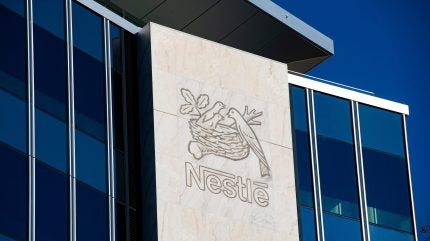
Nestlé has spun off its Freshly meal-kit e-commerce delivery business into a joint venture with private-equity firm L Catterton.
In a newly formed “partnership” with Connecticut-headquartered L Catterton, the tie-up also incorporates the investor’s Kettle Cuisine-owned business, a Massachusetts-based supplier of soups, sauces and side dishes to the retail and out-of-home channels.

Discover B2B Marketing That Performs
Combine business intelligence and editorial excellence to reach engaged professionals across 36 leading media platforms.
In a brief statement, Nestlé said it will hold a minority stake in the venture, which “will focus on offering a wide assortment of fresh food products to customers across geographies and a variety of channels”. No other commentary or background details were provided.
Just Food has approached the world’s largest food maker to clarify a media report suggesting it will hold 41% of the partnership. This publication has also contacted L Catterton for further comment and to confirm the private-equity firm’s investment position in Kettle Cuisine.
Nestlé first invested in New York-based Freshly in 2017 with a 16% interest before purchasing the remainder of the direct-to-consumer subscription business in 2020 for US$950m.
Nestlé updates financial targets
Meanwhile, Nestlé has tweaked its sales guidance higher for 2022 organic growth ahead of an investor seminar in Barcelona today (29 November). At the same time, the company revealed a review of its peanut allergy business, Palforzia. The Maggi maker also set out targets for a series of financial metrics up to 2025.

US Tariffs are shifting - will you react or anticipate?
Don’t let policy changes catch you off guard. Stay proactive with real-time data and expert analysis.
By GlobalDataFor this year, Nestlé expects its sales to rise on an organic basis by “between” 8% and 8.5%, compared to a previous estimate of “around” 8%. The outlook for another key metric – which Nestlé calls its underlying trading operating profit margin (UTOP) – has been maintained at “around” 17%.
Up to 2025, the company reiterated its targets for a “mid-single-digit” rise in organic sales each year. It also plans to achieve an annual UTOP of 17.5% to 18.5% by 2025 “following the margin impact of a sharp increase in cost inflation in 2021 and 2022”.
Nestlé also expects to deliver annual growth in its underlying earnings per share of 6% to 10% in constant currency over the period 2022 to 2025. It plans to “trend toward free cash flow of 12% of sales and return on invested capital of 15% by 2025”.
The KitKat owner’s annual results are not due until 16 February. Nine-month figures in October showed third-quarter real internal growth (RIG), which strips out pricing from organic growth, turned negative, coming in at minus 0.2%.
As a hedge against rising input costs and supply-chain constrains, Nestlé also revealed in October an SKU rationalisation strategy. And now, the company said it has “decided to explore strategic options for Palforzia”, the peanut allergy treatment firm housed in the Nestlé Health Science division.
Palforzia was part of the California-based Aimmue Therapeutics business of which Nestlé took full control in 2020 after an earlier investment dating back four years.
While a commitment was made to “its longstanding nutrition, health and wellness strategy”, the explanation behind Palforzia was the “slower-than-expected adoption by patients and healthcare professionals”.
“Going forward, Nestlé Health Science will sharpen its focus on consumer care and medical nutrition” ahead of the review, due to be completed in the first half of next year.
CEO Mark Schneider said in a separate statement: “We have made significant progress in recent years, accelerating organic growth, increasing margins and enhancing capital efficiency. We will continue to invest for future growth, investing behind our brands, delivering impactful innovation, leveraging digitalisation and improving speed and agility.”





